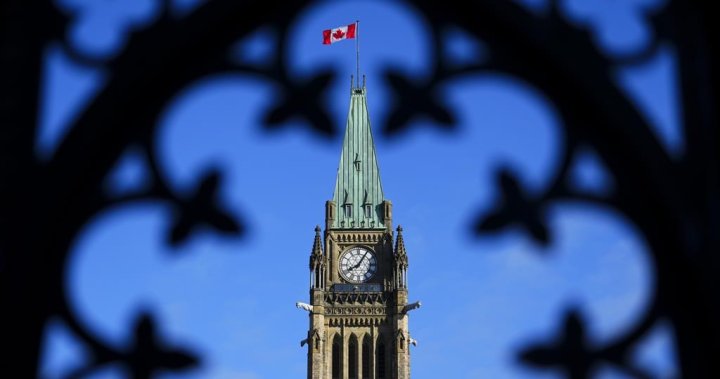If you’re thinking there has been a lot of rain this summer in Toronto, you’re right.
In fact, many parts of Eastern Canada have been seeing a wetter than normal year – and with just over a month until summer ends, the country’s largest city has seen already seen its wettest summer ever.
“That’s impressive considering we are only halfway through August,” Global News Meteorologist Ross Hull said.
“This year has been much wetter than normal across Eastern Canada, especially for the GTA (Greater Toronto Area) and Montreal area.”
Hull shared the figures after the region experienced another heavy rainfall over the weekend, another rain event less than a month after catastrophic flooding in Toronto caused more than $940 million in insured damage, the Insurance Bureau of Canada said Monday.
Toronto Pearson Airport recorded 128.3 millimetres of rainfall Saturday, according to Environment Canada. Given that the airport gets an average of 78 mm of rain in August, the downpour meant it saw more than a month’s worth of rain in the span of hours.

Get breaking National news
For news impacting Canada and around the world, sign up for breaking news alerts delivered directly to you when they happen.
Hull said the west end of the GTA saw two month’s worth of rain falling over a weekend.
“Toronto (Pearson Airport) has had its wettest summer (June, July, August) on record with a rain total of close to 500 mm so far, beating the previous wettest summer on record in 2008,” he said.
“This summer has also produced two of the top 10 wettest days on record at YYZ: the July 16 rain event that brought significant flooding to the GTA and flooded the (Don Valley Parkway with 97.8 mm), along with this weekend’s deluge that delivered a staggering 128.3 mm to Mississauga on Saturday with a weekend total of 150.6 mm.”
Hull added Montreal has also broken rainfall records this summer, with the rainiest day on record being Aug. 9 when 153.8 mm fell, breaking the previous record by 60 mm. The average August monthly rainfall for Trudeau Airport is 94.1mm, he said.
Montreal was hit hard by the remnants of tropical storm Debby, which led to water-logged homes and highways. Debby’s deluge flooded 3,300 private buildings and about 60 municipal buildings, according to Mayor Valérie Plante.
Nova Scotia has also had flash flood events this summer, Hull said. Heavy overnight rain washed out roads and forced evacuations in early July, and was also blamed for the death of a 13-year-old boy.
That region of Nova Scotia is still recovering from flooding a year ago that caused extensive damage, and killed four people.
Hull said the intensity of floods this summer has overwhelmed the infrastructure in many cities.
“Many urban drainage systems and structures are not designed to withstand a month’s worth of rain or more within just hours,” he said.
“Plus, the ground has been saturated, meaning less ability to absorb runoff from these storms.”
© 2024 Global News, a division of Corus Entertainment Inc.




